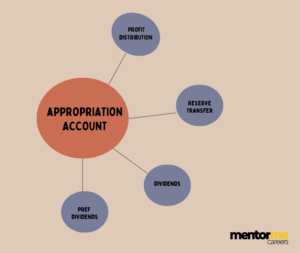Last updated on August 11th, 2024 at 04:00 pm
So, let me give you some examples to make you understand the social audit meaning.
One example of a real-life social audit is the Fair Labor Association (FLA) audit of a factory in China that produced clothing for a number of major clothing brands. The FLA is an independent organization that conducts social audits of factories around the world to ensure that they are in compliance with international labour standards.

The audit found that the factory was in violation of a number of labour standards, including excessive overtime, lack of proper safety equipment, and failure to provide adequate training to workers. The audit report also found that the factory had not properly implemented the FLA’s Code of Conduct, which sets standards for worker rights, health and safety, and environmental protection.
Introduction to Social Audit Meaning
The audit is the examination or inspection of all the books of accounts of a firm, organisation, or company by an auditor. The audit is followed by actual physical checking of the inventories to make sure that all departments are following the documented system of recording the transactions. Auditing is done to ascertain the accuracy and authenticity of the financial statements of the firm, company, or organisation. In this article, we will be looking briefly at the Social Audit.
What is a Social Audit?
A Social Audit is a formal evaluation of a company’s procedures, code of conduct, and endeavours with respect to Corporate Social Responsibility (CSR) and social impact. It portrays how well the company is achieving its goals. Many companies make goals and objectives with regards to CSR initiatives, and the same can be reviewed with the help of Social Audits. Social audits have a strong impact and influence on the public relations image of the companies as these companies strive to maintain a balance between their social responsibilities. By doing this, they provide value to their investors and shareholders.
Understanding Social Audits Meaning
Corporate social responsibility is increasing rapidly in today’s business world. It has become necessary for corporations to maintain a delicate balance between responsibility to their shareholders and investors. They have to make certain objectives with regards to making strong social impacts. CSR is often integrated into many other areas of a company’s service lines. A social audit determines how a particular business affects society. The audit helps companies to determine if they are meeting their objectives. The audits also serve as a way for businesses to check whether their actions are affecting the public image in a positive or a negative way. This can help the companies in improving their public image and public relations. This is a crucial aspect for many larger publicly traded corporations as the public perception is tied to their earnings and share price.
The Growing Importance of Social Audits in Modern Business
As global awareness of corporate responsibility grows, the relevance of social audits continues to increase. Companies are under more pressure than ever to ensure that their business practices align with their stated social and ethical values. A well-executed social audit not only helps organizations identify gaps in their CSR strategies but also reinforces their commitment to ethical practices, thereby strengthening their public image and stakeholder trust. In a world where consumers and investors are more socially conscious, the insights gained from social audits are invaluable for long-term business success.
History
Social audits are a relatively new concept in the business world. The first social audit was conducted in Sweden by work-life researchers at the Centre for Swedish Working Life, John Fry and Ulla Ressner. The audit, published in 1988, focused on Sweden’s central bureaucracy and involved interviews and questionnaires with employees across various levels. The study evaluated the company’s objectives and provided insights into the organization’s effectiveness, leading to recommendations for improvement.
Items evaluated
Social Audits takes into consideration many aspects within an organization to measure, report, and improve the organisation’s performance. Some of the items examined by social audits are:
- Record of charitable contributions
- Volunteer events
- Transparency within the organisation
- Work environment
- Salaries and wages of the employees
- Community initiatives and activities
- Diversity in the workplace
- Accounting and financial transparency
- Non-discriminatory practices
- Charitable giving
- Community development and financial contributions
It’s important to note that there are no specific standards or rules for conducting social audits, giving organizations flexibility in implementation. Social audits may not always be made public; they can also serve as internal tools for management to enhance the company’s social efforts.
Use of Social Audits
Social audits do not have a governing body, which means organizations can decide whether to share the findings with shareholders and investors. Despite this, the results are extremely beneficial as they help organizations understand their strengths and weaknesses. Social audits also enable companies to evaluate their social initiatives, which can significantly influence their public image and relations.
Social Audit: Apple Computers
One notable example of a social audit is the Fair Labor Association (FLA) audit of Foxconn, a major supplier of Apple products in China. In 2012, the FLA conducted an independent investigation into working conditions at Foxconn’s factories, following reports of poor labor conditions and rights violations.
The FLA audit revealed that Foxconn workers were subjected to excessive overtime and were not adequately compensated. Additionally, it found that Foxconn had failed to implement several labor standards related to health and safety, worker rights, and environmental protection.
In response, Apple and Foxconn took several measures to address the issues identified in the audit. These included reducing working hours, increasing wages, and providing workers with proper safety equipment. Foxconn also implemented a monitoring and reporting system to ensure ongoing compliance with the FLA’s Code of Conduct.
This case study illustrates how Apple and Foxconn responded to the social audit findings, taking steps to improve their social and ethical performance. It also highlights how companies can use social audits as a tool to monitor and enhance working conditions at their suppliers, ensuring adherence to international labor standards.




